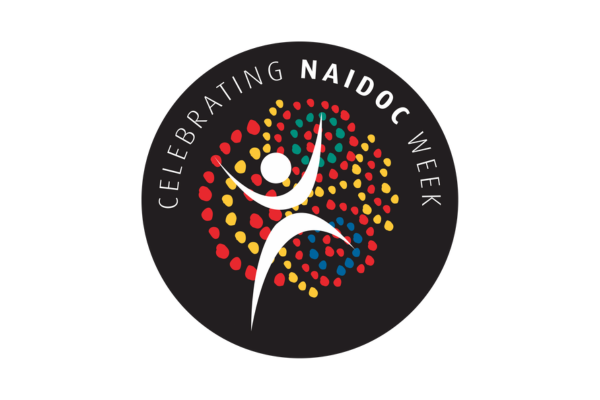Experts in psychiatry, medicine and neurology
8 Jul 2021
- Day in the life
Ever wondered what it's like to be a psychiatrist? This series explores a day in the life of psychiatrists who work in different areas of psychiatry.
In this article, we hear from Dr Samantha Loi who is a neuropsychiatrist.
A Day in the Life of a Neuropsychiatrist
What is neuropsychiatry?
A neuropsychiatrist is a psychiatrist who specialises in the interface between psychiatry, neurology and general medicine. Disorders might include psychiatric disorders secondary to organic brain disease such as epilepsy, multiple sclerosis and neurogenerative conditions; genetic disorders which have psychiatric, cognitive and neurological symptoms such as Huntington’s disease and Niemann Pick type C; traumatic brain injury; and developmental disability.
As well as psychiatric expertise, a neuropsychiatrist might have knowledge of neuroimaging, cognition, genetics and rare neuropsychiatric conditions and access to these assessments and respective services.
Multidisciplinary learning and collaboration
On a busy day, I start at 8 am and administer electroconvulsive therapy to several patients. I then attend the neurology grand round, where there are presentations of complex and interesting cases. The neuropsychiatry service based at Royal Melbourne Hospital (RMH) works closely with the neurology service, with a neurologist attending our inpatient service. This morning is a presentation on psychogenic non-epileptic seizures and the difficulties that can emerge. A neuropsychiatry-based registrar also provides neuropsychiatric assessments and liaison to the neurology subspecialty video-EEG monitoring (VEM) unit at RMH.
I work in the outpatient service and at 10.30 we have our outpatient review, where the multidisciplinary team meet and discuss our patients from the week before. This is an opportunity for problem-based teaching as we talk about specific diseases, their symptoms, cognition, and review imaging. We discuss a patient who has a rare metabolic disease, Niemann-Pick type C, which is a genetic disorder of abnormal cholesterol metabolism, which often presents with psychosis and cerebellar abnormalities in the teens.
An hour later is our regular team Clinical Review Meeting, involving staff members, students and research staff. The whole team discusses referrals, updates, and events such as presentations, conferences and research-related activities, and is also an opportunity to partake in morning tea.
Neuropsychiatry and Huntington’s disease (HD)
I am then whisked off to the HD clinical trial meeting. Currently our service is involved in a potentially ground-breaking antisense oligonucleotide infusion randomised controlled trial for early-stage HD. Patients are admitted every two months to have a lumbar-puncture and infusion of either the drug or a placebo. Their neurology, cognition and psychological status are regularly monitored to check for safety and improvement of symptoms.
After a brief lunch, I have an afternoon of outpatients. My first patient is a “predictive” patient – someone with a 50% risk of HD (one affected parent). This appointment involves discussing the predictive process with the patient, their motivations for testing and their actions depending on obtaining a positive or negative result. It also involves a targeted psychiatric history including previous reactions to stressors, managing anxiety and previous experience with the affected parent with genetic disorder.
There are few contraindications to predictive testing, however if the person is experiencing a lot of psychosocial stressors or is acutely depressed, I would recommend obtaining treatment for their condition (psychological or pharmacological) and suggest that some time should pass while they get better, before getting genetic results. Interestingly with the HD population, while almost 100% of people in an HD family endorsed having the availability of a genetic blood test, only about 20-30% of people actually follow through with obtaining test results.
Younger-onset dementia assessment
My next patient is a 57-year-old man attending with his case manager and consists of a feedback session to provide information about their neuropsychology, neuroimaging and symptoms to see if they had a younger-onset dementia. He was referred from the community mental health service and had a relatively recent history of bipolar affective disorder (BPAD) five years ago but was thought not to be functioning as well as he ought to, hence the referral.
Frontotemporal dementia (FTD) is the second-most common younger-onset dementia, after Alzheimer’s disease. The behavioural-variant FTD (bv-FTD) may present with symptoms of impulsivity, disinhibition and agitation which could be symptoms of BPAD. In someone with chronic schizophrenia, the apathy, amotivation and lack of empathy, could also be symptoms of abv-FTD. These psychiatric conditions may also have frontotemporal atrophy, frequently seen in bv-FTD. Often only with repeat follow-up assessment will we have a more definitive answer, as dementia would imply further deterioration and progression of their cognition and functioning.
For my patient this afternoon, I liaised with the neuroradiologist about the structural (MRI) and functional (PET) scans and they did have frontotemporal atrophy and decreased perfusion, respectively. However, with discussion with the neuropsychologist who performed a detailed cognitive assessment, the cognitive deficits present were consistent more with a chronic psychiatric illness of BPAD, rather than a dementia per se. This was important information for the patient and case manager in terms of ongoing support and management of their condition and psychosocial circumstances, however we arranged to repeat these assessments and neuroimaging in 18 months.
What do I enjoy about being a neuropsychiatrist?
I like that I get to use my clinical skills of mental state examination and knowledge of phenomenology and psychiatric disorders matched with anatomy and physiology, such as performing neurological examination and being proficient in assessing neuroimaging. I feel that as a neuropsychiatrist, you are able to truly assess and manage the biopsychosocial aspects of a person.

Become a Psychiatry Interest Forum (PIF) member to gain access to information and events to learn more about psychiatry.
About the author

Associate Professor Samantha Loi
Associate Professor Samantha Loi is an old age psychiatrist and neuropsychiatrist working at the Royal Melbourne Hospital Neuropsychiatry service and Department of Psychiatry at the University of Melbourne. She works clinically with people with young-onset neurocognitive disorders including Huntington’s disease and has multiple research publications in the area of young-onset dementia, ageing and mental health of older adults.
Samantha is the current Victorian Chair of the Faculty of Psychiatry of Old Age of the Royal Australian New Zealand College of Psychiatrists and Chair of the Young-Onset Dementia Special Interest Group.
Associate Professor Samantha Loi is an old age psychiatrist and neuropsychiatrist working at the Royal Melbourne Hospital Neuropsychiatry service and Department of Psychiatry at the University of Melbourne. She works clinically with people with young-onset neurocognitive disorders including Huntington’s disease and has multiple research publications in the area of young-onset dementia, ageing and mental health of older adults.
Samantha is the current Victorian Chair of the Faculty of Psychiatry of Old Age of the Royal Australian New Zealand College of Psychiatrists and Chair of the Young-Onset Dementia Special Interest Group.
Disclaimer: Any patients mentioned in this article have been deidentified and created for the purposes of this article. This article may represent the views of the author and not necessarily the views of The Royal Australian and New Zealand College of Psychiatrists ('RANZCP'). By accessing the article you also agree to the RANZCP Website Terms of Use Agreement.
More news & views
As of 20 September, 28 of this year’s deliverables have been completed, and the mandatory annual rep...
 07 July 2025
07 July 2025
This year’s National NAIDOC Week from 6–13 July marks a powerful milestone: 50 years of honouring an...
Qualified privilege covering Australian Peer Review Groups has momentarily expired. An application f...